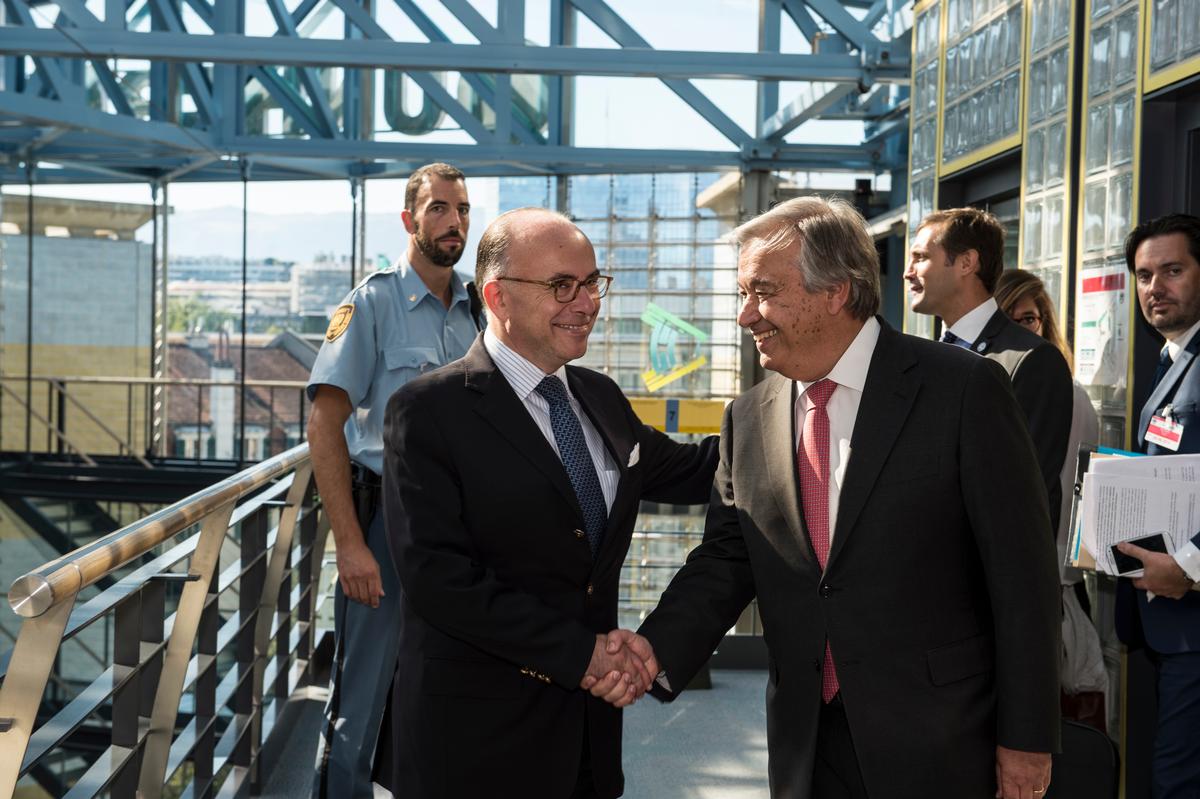Guterres winds up four-day mission to Georgia and the Russian Federation
Guterres winds up four-day mission to Georgia and the Russian Federation
Geneva, Friday 22 August 2008
VLADIKAVKAZ, Russian Federation - UN High Commissioner for Refugees António Guterres today concludes a four-day mission to Georgia and the Russian Federation that included visits with people uprooted by the crisis in the breakaway Georgian region of South Ossetia.
Following discussions with high-ranking Georgian authorities on Tuesday, Guterres met in Moscow on Wednesday with Foreign Minister Sergey Lavrov. They focused on humanitarian cooperation between UNHCR and the Russian Federation in a number of areas, including strengthening joint emergency response mechanisms. Much of the discussion focused on humanitarian concerns linked to the South Ossetia situation as well as broader protection-related issues for affected civilian populations.
"We discussed humanitarian access, both in relation to areas of Georgia proper where military movements are still taking place and to South Ossetia itself," Guterres said of his meeting with the Russian foreign minister. "We also examined humanitarian assistance and protection in North Ossetia, which has received thousands of people who fled South Ossetia. In that context, we discussed the process of and prospects for voluntary return. We also agreed on the principle of the non-discriminatory nature of the right of return for all civilians forced to flee."
Russian authorities estimate more than 30,000 people from South Ossetia fled to North Ossetia. Another 128,000 were estimated to have been displaced in Georgia.
While in Moscow, the High Commissioner also visited the new emergency coordination centre operated by EMERCOM, the Russian emergency relief agency with which UNHCR has a longstanding cooperation agreement. On Thursday evening in Vladikavkaz, he met with Serguei Shoigu, minister for civil defense, emergencies and disaster response.
Guterres also held talks with the head of Russia's Federal Migration Service (FMS), Konstantin Romodanovsky, who accompanied him in his visits to refugee sites in North Ossetia. Their talks included a thorough analysis of recent substantial progress in the development of Russia's asylum system.
After arriving in Vladikavkaz, the High Commissioner visited refugees and displaced people from South Ossetia and praised the rapid and effective response to their needs by Russia's humanitarian agencies, including EMERCOM and FMS. Uprooted people in two church-sponsored accommodation centres were unanimous in their desire to return to South Ossetia as soon as they felt it was safe.
"It was very clear to me that the large majority of those here want to go back home as soon as possible," Guterres told reporters. "Working with refugees around the world, we always prefer voluntary repatriation and we certainly hope it will be possible very soon."
Today, Guterres is visiting South Ossetia on a mission aimed at evaluating the humanitarian situation as well as the possibilities for humanitarian access and seeing first-hand the conditions for the return of those uprooted by the crisis. He is the first senior international official to travel to South Ossetia since the conflict erupted in early August. Noting that under the current circumstances the only way to enter South Ossetia was from North Ossetia, Guterres expressed his appreciation to Foreign Minister Lavrov and Russian authorities for facilitating his humanitarian mission.
UNHCR will continue its humanitarian assistance based on a strictly non-political approach while stressing the non-discriminatory nature of humanitarian action for all of the people affected by the conflict and emphasising the right of return for all of the displaced regardless of ethnicity, religion or political affiliation.







